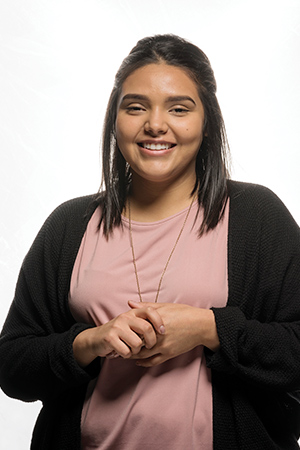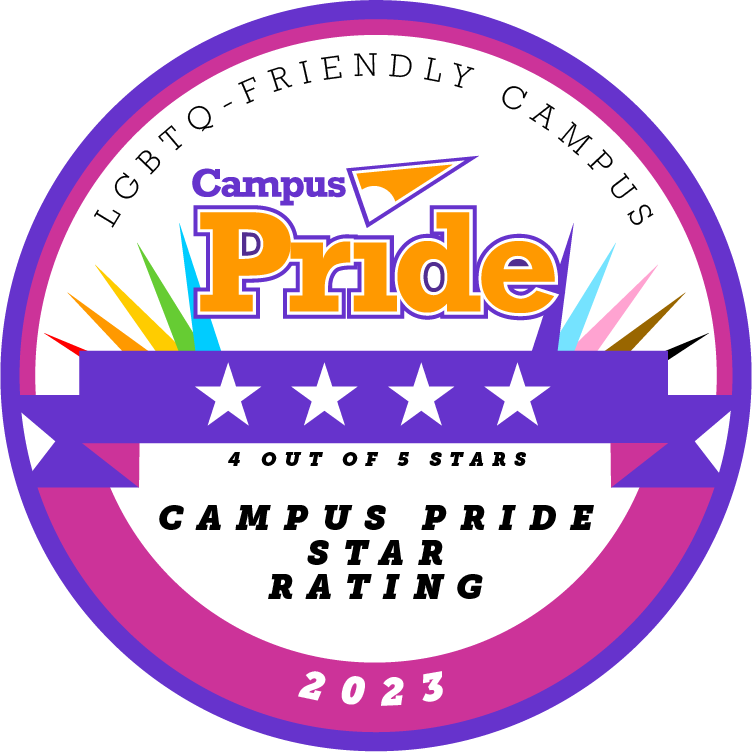Katya Ponce-Sanchez

Name: Katya Ponce-Sanchez
Hometown: Chico
Role on campus: Alumni Journalism major with an emphasis in public relations
Years on campus: 5
Did you or do you have plans to continue your education beyond a four-year degree? Yes. I plan to pursue a master's degree in social work.
Why did you choose Chico? I wanted to stay close to my family, especially close to my little brother. By staying close to him, I was able to watch him grow in to the smart young man that he is now. Also, I wanted him to see me grow and see that all the hard work that my parents have done to give us a better future is paying off.
What first sparked your interest in a college education? My parents. From a very young age I knew that I was going to go to college. As a daughter of Mexican immigrants, my parents always made it their mission to tell me that I should be focused in my education because that was going to be the key to my future and open many doors. Plus, they had given up a lot in order for this to happen.
What were some barriers that prevented others in your family from completing a four-year degree? I think one of the biggest barriers had to be money and the lack of resources they had growing up. Coming from a low-income family, I got to experience seeing my parents work more than enough in order to make ends meet. But my parents never wanted me to worry about that. They'd tell me that my only worry should be my education. I was fortunate enough to at least have some resources that have guided to where I am now. And for that, I recognize the little privilege I have by being able to attend college.
Who can you point to as a mentor or inspiration in your pursuit of a four-year degree and why? This one's a tough one because I have had a lot of mentors that have inspired me and continue to do so. I had a few advisors from the Educational Talent Search (ETS), a TRiO program that helps students who are first-gen and come from low-income families pursue a higher education. They taught me that there were a lot more careers out there and showed me other resources that could help a student like me be successful. Without them I wouldn't have known anything about leadership, careers, college applications, or even how to apply for financial aid. All I knew was someday I was going to attend college, but I didn't know what I needed to do. Thanks to ETS, they guided me through that and offered me so much more. But most importantly, I would have to say that my No. 1 mentors were my parents. Growing up, all I saw them do was work and work—there was never really a day off. I knew that me continuing my education was going to be my way of giving back to them.
What does being first-gen mean to you? Having something more to work for. Not everyone is able to attend college, which motivates me to work extra hard. This isn't only for me—it's for my parents. I owe everything to them.
What challenges do you struggle with or have you overcome as a result of being first-gen? I think that one of my biggest struggles had to be transitioning to college. Even though I grew up here and was familiar with the campus, I didn't know what it felt like to be a student here. In other words, I had been outsider until I was an actual student. It was a stressful change because that meant that it was becoming more and more difficult for my parents to relate to my daily work and to understand what I was going through as a college student. But that didn't stop them from being supportive.
What is your wildest ambition? Working even harder than I have before in order to get into grad school. I'm excited and nervous to continue this chapter in my life.
What message do you want to send other first-gen students? Regardless of the struggles that you may be having, don't give up. I know it's easier said than done. But quitting is just too easy. Continue moving forward. Sure, it may be hard, but you can't let yourself fall back. Believe in yourself. Hard work always pays off.

